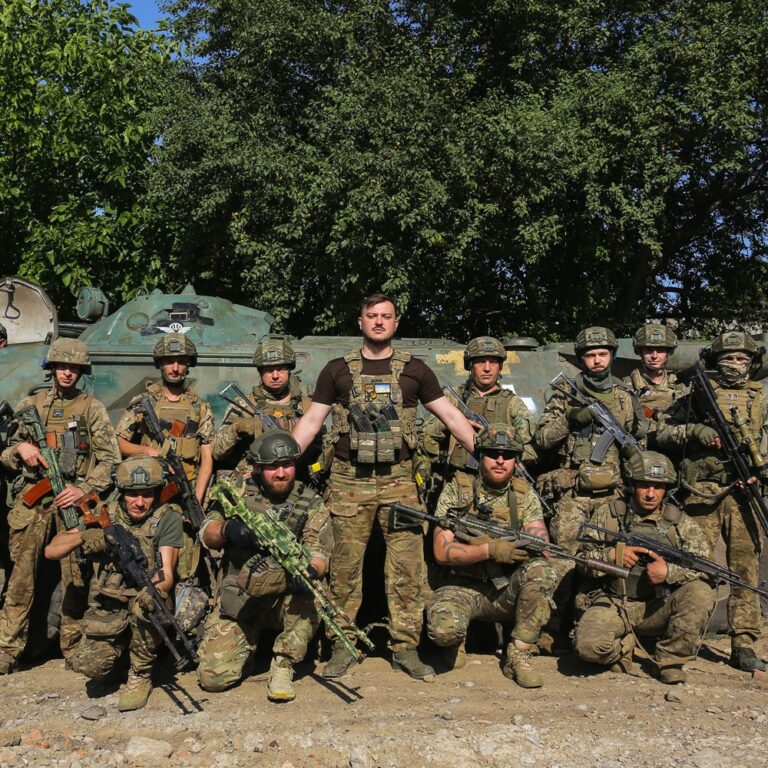The town of Bakhmut in the Donetsk region, formerly known as Artemivsk before decommunisation in Ukraine, was already an area of confrontation between the Ukrainian Armed Forces and Russia-backed militants in 2014. The battles continued for several months back then, and the occupiers eventually retreated from the region.
A town with a population of over 70,000 people has been trying to build its life and keep developing for the past eight years: it was the centre of the salt industry, with numerous plants operating and even producing sparkling wines. Everything has changed dramatically since Russia’s full-scale invasion: due to its proximity to the demarcation line with the territories temporarily occupied in 2014, by the spring of 2022, the city was left without electricity and suffered from Russian shelling and air strikes. As of the beginning of autumn 2023, almost all buildings and infrastructure were heavily damaged or destroyed, leaving 99% of residents with nowhere to return to.
Decommunisation in Ukraine
The process of removing the effects of communist ideology, launched after the collapse of the USSR and intensified during the Maidan Revolution and Russian invasion of Ukraine.Since spring 2022, the Ukraїner team has been recording stories of resistance and invincibility of Ukrainians in the liberated territories in the project De-occupation. We have visited the de-occupied towns and villages of Kyiv Polissia, Sivershchyna, Slobozhanshchyna, and Prychornomoria regions. Documentary videos and written reports from these trips are available at our media platforms. Also in 2023, a collection of journalistic stories by Bogdan Logvynenko, Ukraїner’s founder and a regular participant in these trips, titled De-occupation. Stories of Ukrainian Resistance 2022, was released, and it will also be published in English later.
These days, we continue to record the successes of the counteroffensive campaigns of 2023 and the valour of our defenders on several fronts. In August 2023, our team visited the settlements near Bakhmut, where the Ukrainian army continued to force out the invaders.
The battle for Bakhmut, a fortress city
The series of battles for Bakhmut is often referred to as one of the bloodiest stages of the full-scale phase of the Russo-Ukrainian war. And rightly so: active hostilities around it began in August 2022 and are still ongoing.
Before the battle of Bakhmut, Ukrainian Brigadier General Oleksandr Tarnavskyi stated that Russia had a five-to-one superiority in manpower over Ukraine on the eastern front. Russia has made this Ukrainian city in Donechchyna (another name for Donetsk region — ed.) not only a military but also a political aim, striving to achieve it at all costs. Its occupation could have opened up an opportunity for the enemy to capture Sloviansk and Kramatorsk, the westward agglomerations of the region. The Russian government manipulatively justified the invasion of Ukraine to its people and the world by “protecting the people of Donbas”, so it has been focused on the complete “liberation” of the eastern regions. But the Ukrainian defenders did everything they could to thwart the aggressor’s plans. Due to the efforts of Ukrainian defenders, which at times were on the verge of human capabilities, Bakhmut became a fortress city.
“Protecting the people of Donbas”
This Russian propagandist narrative claims that the east of Ukraine, including the economic region of Donbas, predominantly consists of pro-Russian citizens. In reality, this region has always been an integral part of Ukraine. Before the Russian Empire and Soviet influence, the majority of people in this region spoke Ukrainian. This region went through forceful Russification, the perpetration of the Holodomor genocide and still chose to be a part of Ukraine in 1991. Russia invaded it in 2014 and has been forcibly occupying it since then.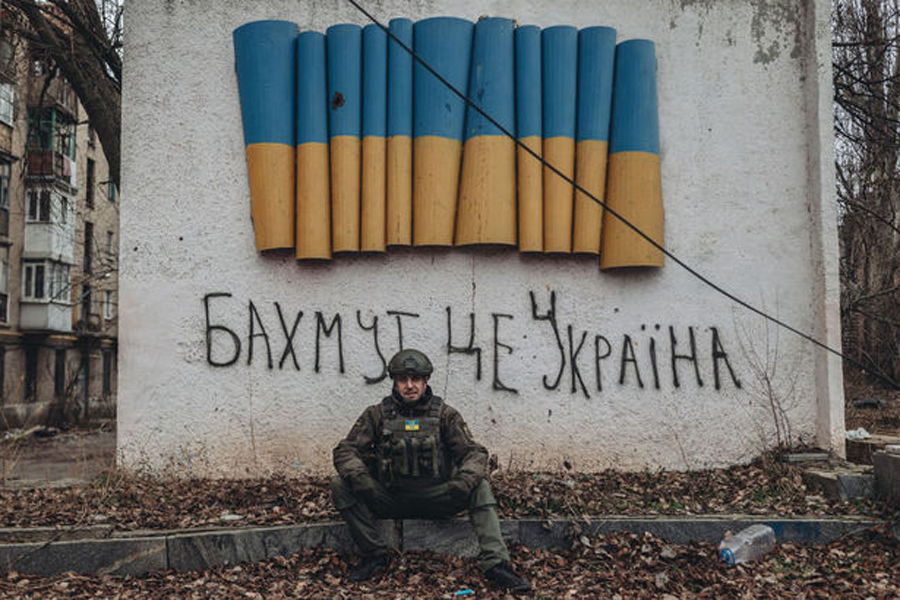
“Bakhmut is Ukraine.” Photo: Getty Images.
The fight for Bakhmut began escalating in December 2022 when the occupiers approached the town. The Russian Wagner PMC (Private Military Company), a terrorist armed group that recruits mercenaries and convicted criminals, played a major role in the enemy assaults. The winter and spring of 2023 saw intense urban combat. The enemy spared no resources in this area, including its “cannon fodder”. Ukrainian defenders resisted the occupiers in incredibly complicated conditions of close combat and the continuing threat of encirclement and blocking the supply lines. At the end of May 2023, Russia announced that it had taken control of Bakhmut (or rather what was left of it). However, first its southwestern outskirts, and then the surrounding peaks and smaller settlements, remained the area of intense armed confrontation for months.
While attacking the occupiers in the Bakhmut sector, the Ukrainian army had liberated 44 km² of the territory as of the end of August 2023. The advance primarily took place on the southern flank of Bakhmut. Ukraїner’s team travelled to Donechchyna to talk to the servicemen who participated in these offensive actions. The trip symbolically coincided with Ukrainian Independence Day.
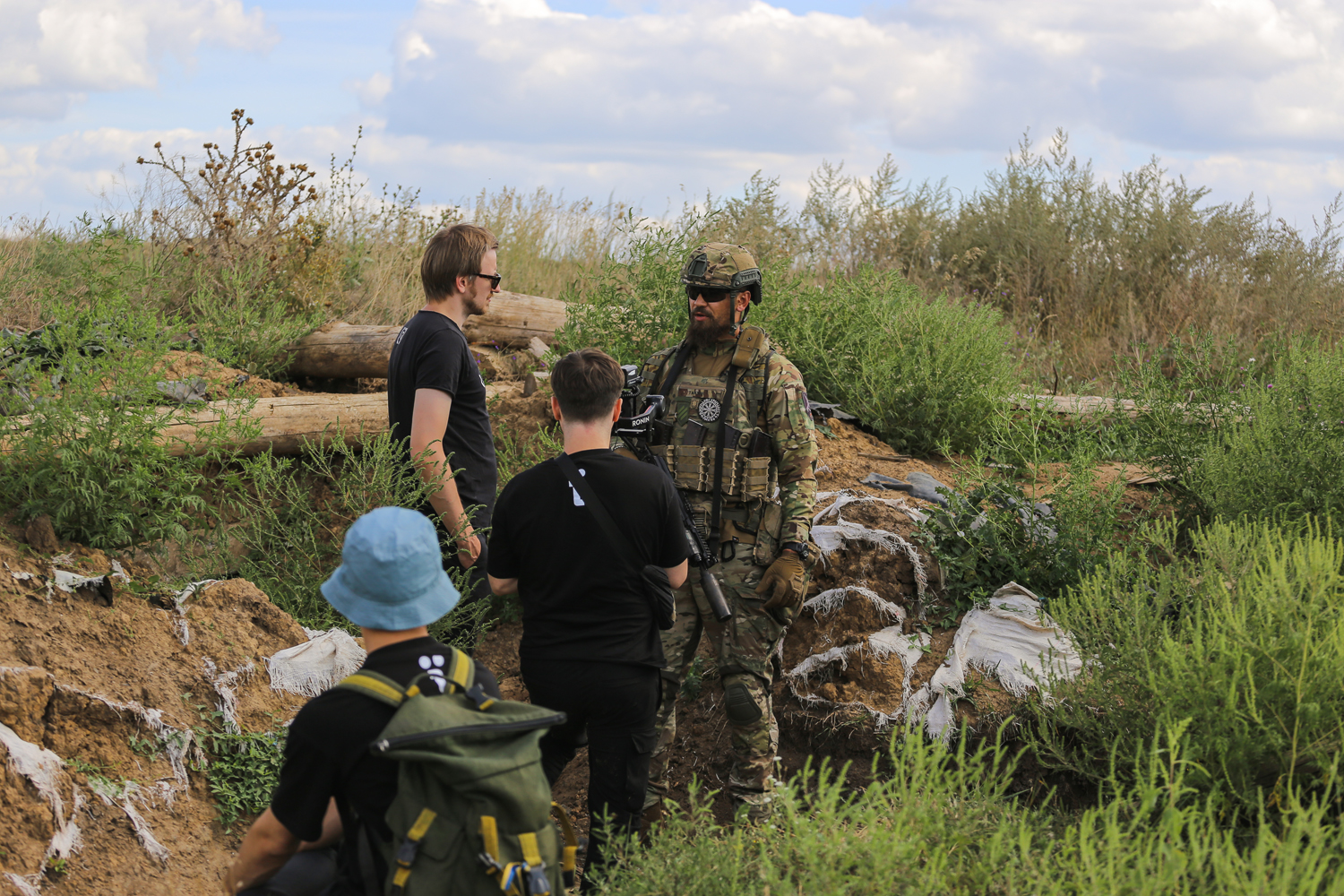
Ukraїner team near Bakhmut.
We did not manage to get to the de-occupied positions because, in almost every wooded area or entrenchment, there are soldiers who continue to carry out combat missions. The enemy is persistently holding the ground; otherwise, the city could be semi-surrounded. Therefore, we’ve talked to our defenders at the withdrawal line, i.e. at testing grounds and in frontline communities.
Fighting in the Bakhmut sector
Vlad Shevchuk, with the call sign “Lys” (“fox” in Ukrainian — ed.), is a squadron commander in the 80th Separate Air Assault Brigade. In February 2022, he joined the Kyiv Territorial Defence Forces ranks and later transferred to the 80th, which he considered one of the most elite of the Armed Forces units. During the winter of 2022-2023, the brigade defended Bakhmut, and following their withdrawal from there, they almost immediately resorted to counterattacks on the southern flank of this fortress city. For several months, the 80th Air Assault Brigade’s strike fighters have been conducting assault operations south of Bakhmut and advancing almost daily.
The fighters note that Ukrainian combat assaults are significantly different from Russian. The enemy relies on sheer numbers, deploying much more infantry to the offensive. Despite suffering heavy casualties, this approach allows the Russians to achieve success due to continuous infantry pressure. Meanwhile, according to a strike fighter with the callsign “Ban”, planning the operation and reconnaissance takes a lot of time for the Ukrainian Defence Forces, and the assault itself is carried out with the utmost caution and control:
— We plan our actions very carefully. There are two main tasks: to fulfil the combat mission and to save the manpower. That is why we plan everything in order to both accomplish the task and suffer as few casualties as possible.
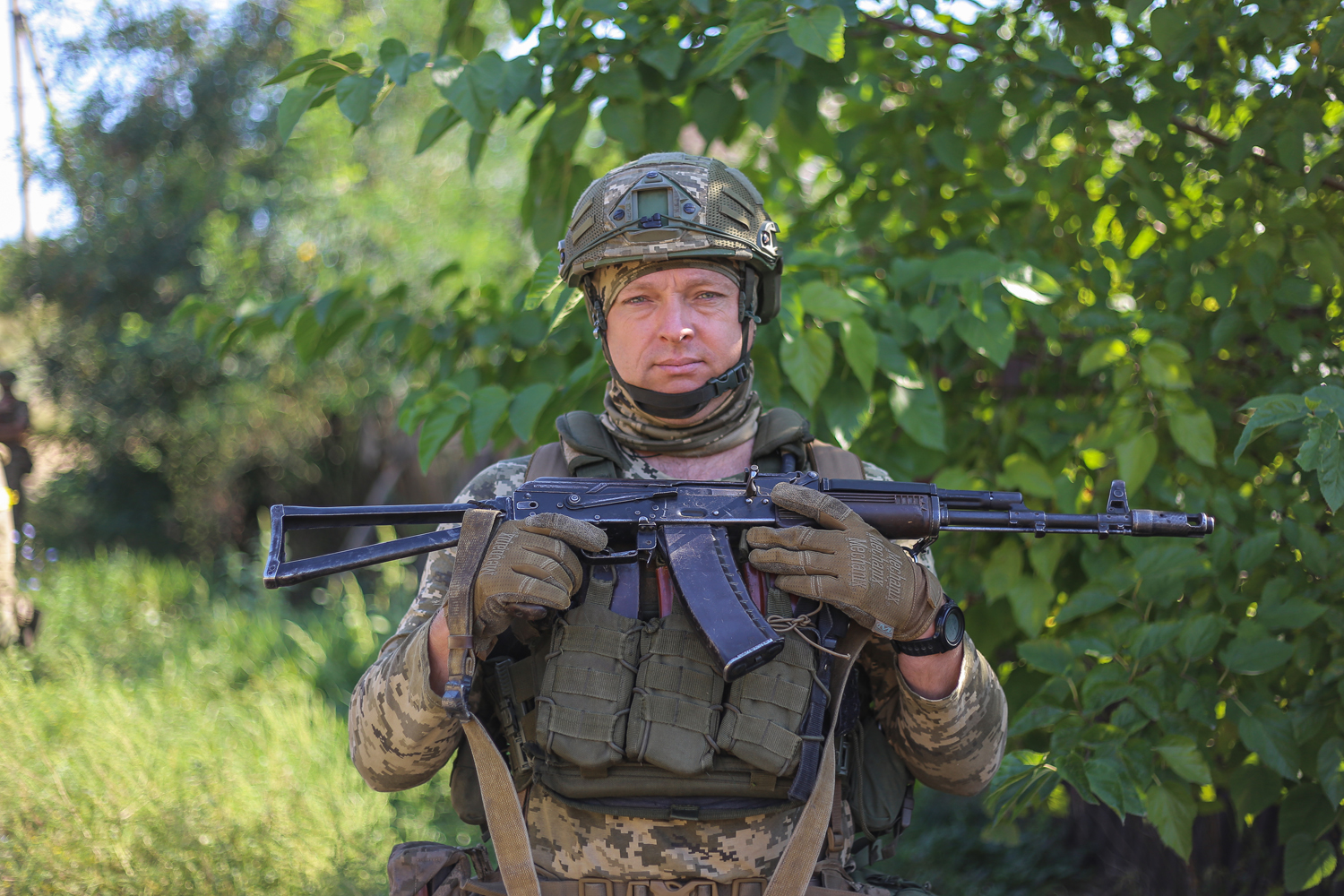
However, the Defence Forces are advancing faster than the Russians managed in the winter of 2022-2023.
In addition, the Ukrainian Armed Forces are now on par with the enemy in terms of the number of artillery pieces in the Bakhmut sector, finally overcoming the munitions shortage, partially due to the supply of weaponry from Western partners. However, careful munition usage and clear planning for their most effective deployment also yielded results. In contrast, the enemy had fewer missiles and artillery compared to the first months of the full-scale invasion. the Ukrainians, they neither conserved nor knew how to efficiently use their munitions.
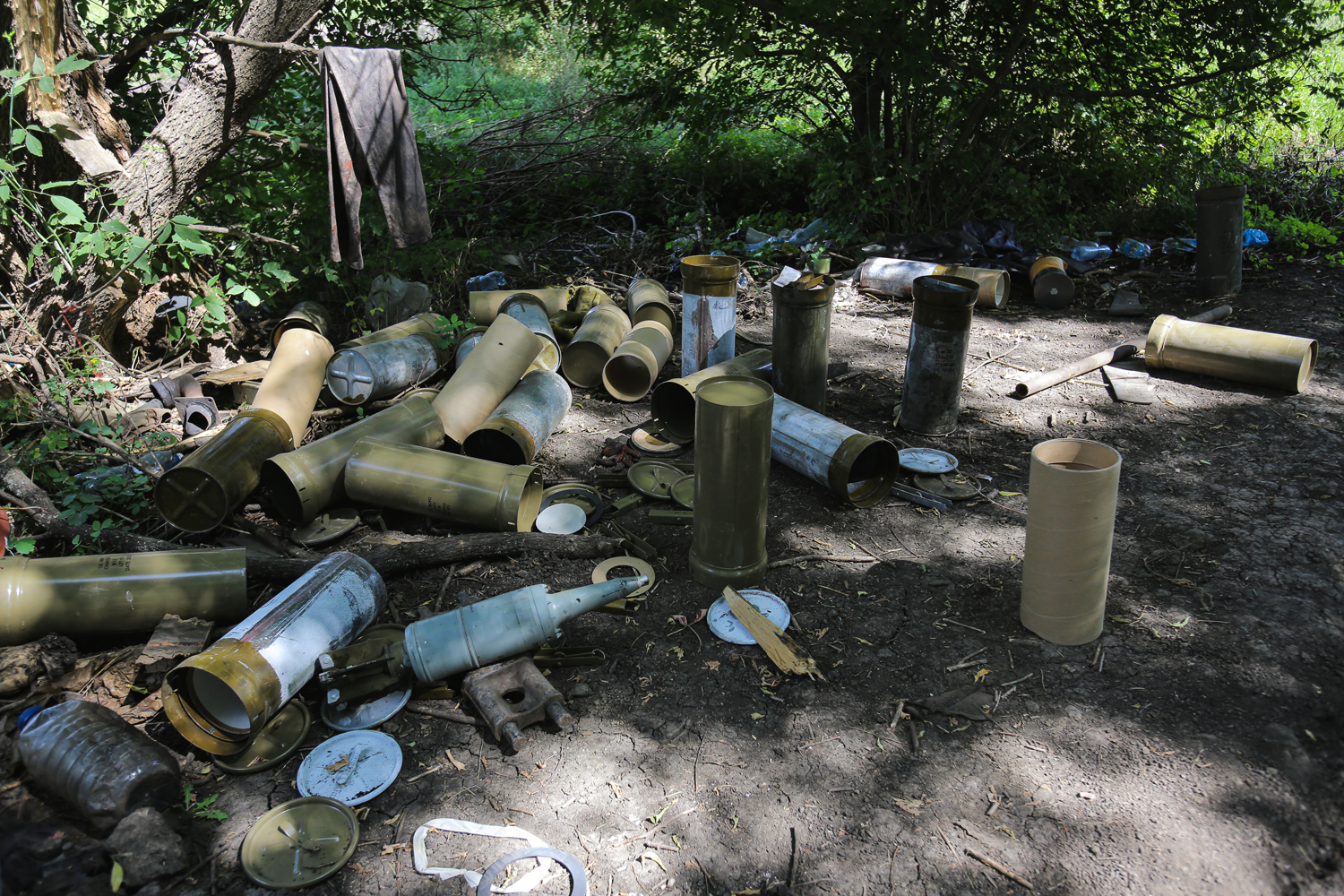
Independence Day of Ukraine at the frontline near Bakhmut
We had a chance to talk to the soldiers holding the line in the Bakhmut sector on very symbolic days – from 23 to 25 August, just when the whole country celebrated the Ukrainian Flag day and Independence Day. During this time, you could feel special enthusiasm in the Eastern front lines.The military greeted us and we greeted them at every checkpoint. That’s why we decided to pose a seemingly simple yet profoundly important question to the defenders of the Bakhmut sector we had the opportunity to speak with: “What is Ukraine for you?”. A stormtrooper from the 80th Air Assault Brigade, with the call sign “Aladdin” and originally from Lutsk, Volyn, responded almost immediately:
— Ukraine is my homeland where I was born. My children are growing up here, my parents grew up here. I’ve never been abroad, yet I had no plans to leave. I have travelled all over Ukraine instead: I’ve been to many cities and seen beautiful landscapes. It is a sincere joy that I’m Ukrainian. I am proud of it.
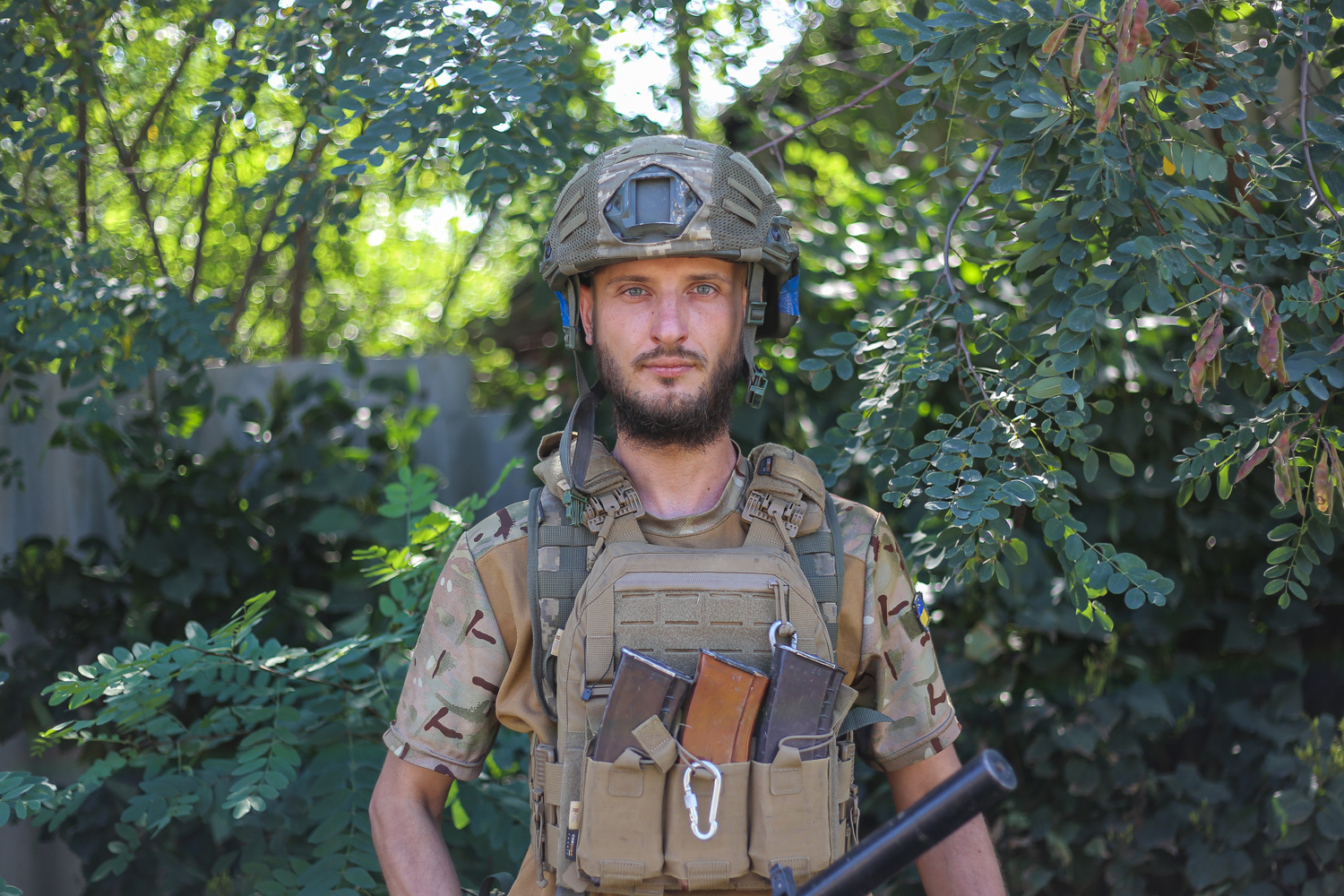
Aladdin enlisted in the Ukrainian Armed Forces and was assigned to the 80th (Air Assault Brigade — ed.). He went on his first combat mission in Bakhmut in March 2023. Back then, despite being an assault brigade, they were in the defence. The defence of this city was very difficult: in March, it was already a ruin, and the Russians tried to break through the defence two or three times a day.
After the tactical withdrawal from Bakhmut, the 80th Brigade immediately launched сounterattacks on the flanks. Alladin says that his brigade was pushing forward much better than the Russians, because he had never seen the occupiers plan their operations well. Firstly, they level everything to the ground with artillery and air force, and then they recklessly deploy a bunch of infantry. Aladdin talked to Russian POWs and made a conclusion that they had not the slightest idea why they were here and what they were fighting for. But the Ukrainian Armed Forces are advancing slowly but surely.
Aladdin’s thoughts about his homeland are picked up by “Skif”, a paratrooper from the town of Prymorsk in the Pryazovia region:
— For me, Ukraine is everything. It is my motherland. I have lived in many cities in Ukraine during my lifetime. This includes Prymorsk where I was born, Bucha, and Kyiv. I want my little son to live in a free country. This is my motivation to fight. So for me, Ukraine is everything. Everything here is marvellous: both nature and people. I like everything here.
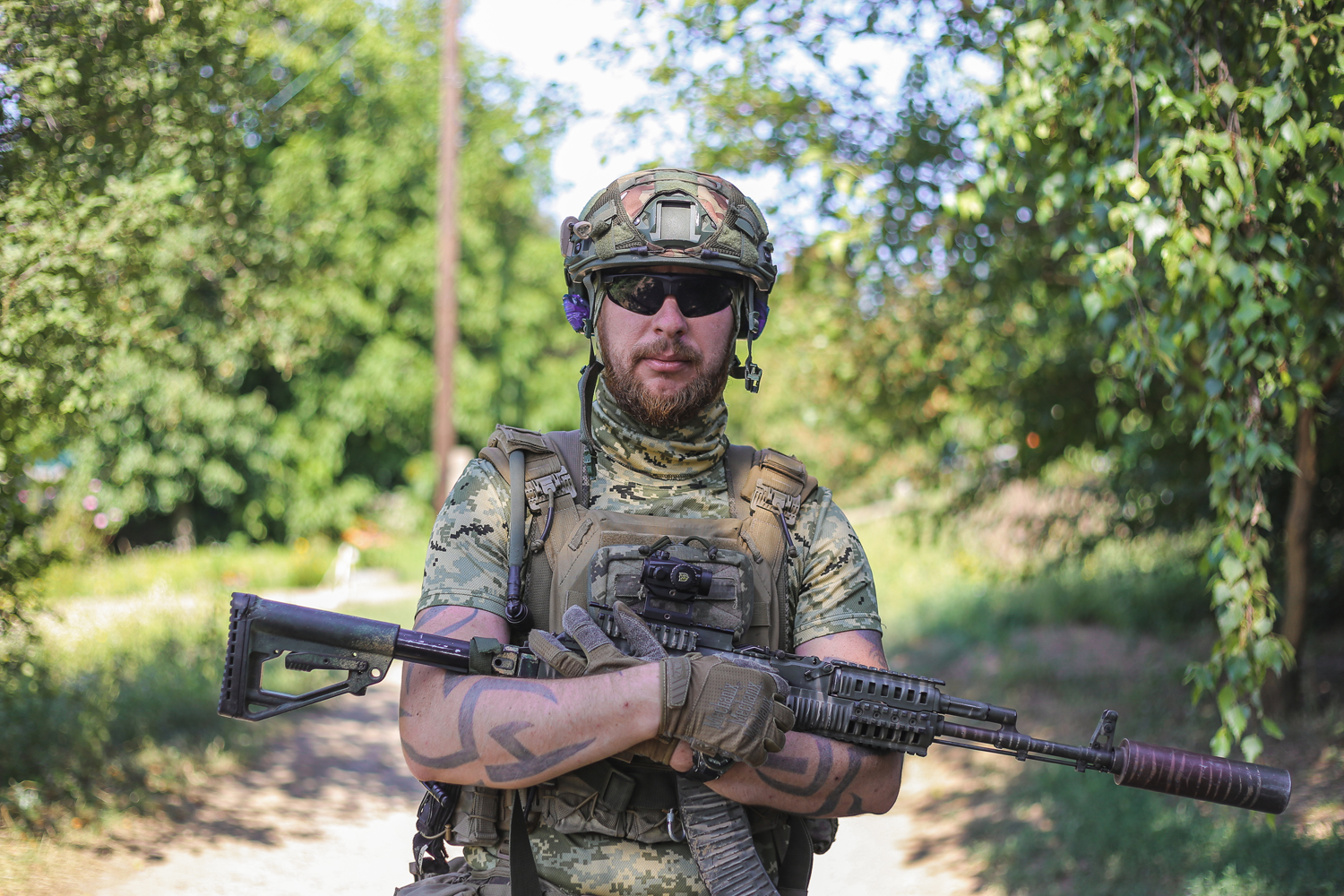
He has chosen a callsign “Skif” since Prymorsk is a part of the region where the Scythians ruled in the olden days. He joined the Ukrainian Armed Forces relatively recently; his decision was influenced by the birth of his son, which occurred soon after the onset of the full-scale war. Heeding advice, he signed a contract and joined the 80th Air Assault Brigade. He vividly remembers his first combat assault — the liberation of the Siverskyi Donets-Donbas Canal south of Bakhmut. There, they encountered two large enemy dugouts. Despite strong resistance, Skif and his fellow strike fighters managed to infiltrate and hold these positions for two additional days, thwarting the Wagner Group’s attempts to recapture them. With a smile, Skif remarks that when an opportunity arises, one must push forward.
A company commander Lys says that thinking of Ukraine helps him persevering in the darkest times, which is why he is now fighting for its independence at the frontline:
— Ukraine is about coming from Kyiv to my small homeland, Pavlohrad. While visiting it, I look at the boundless steppes and fields — breathtaking! When there are bad times in my life, I recollect this endless sky, the vastness and this tranquillity when the country belongs to itself. When it is owned by someone who grew up here, who cultivates [this land], who loves it and who fights for it.
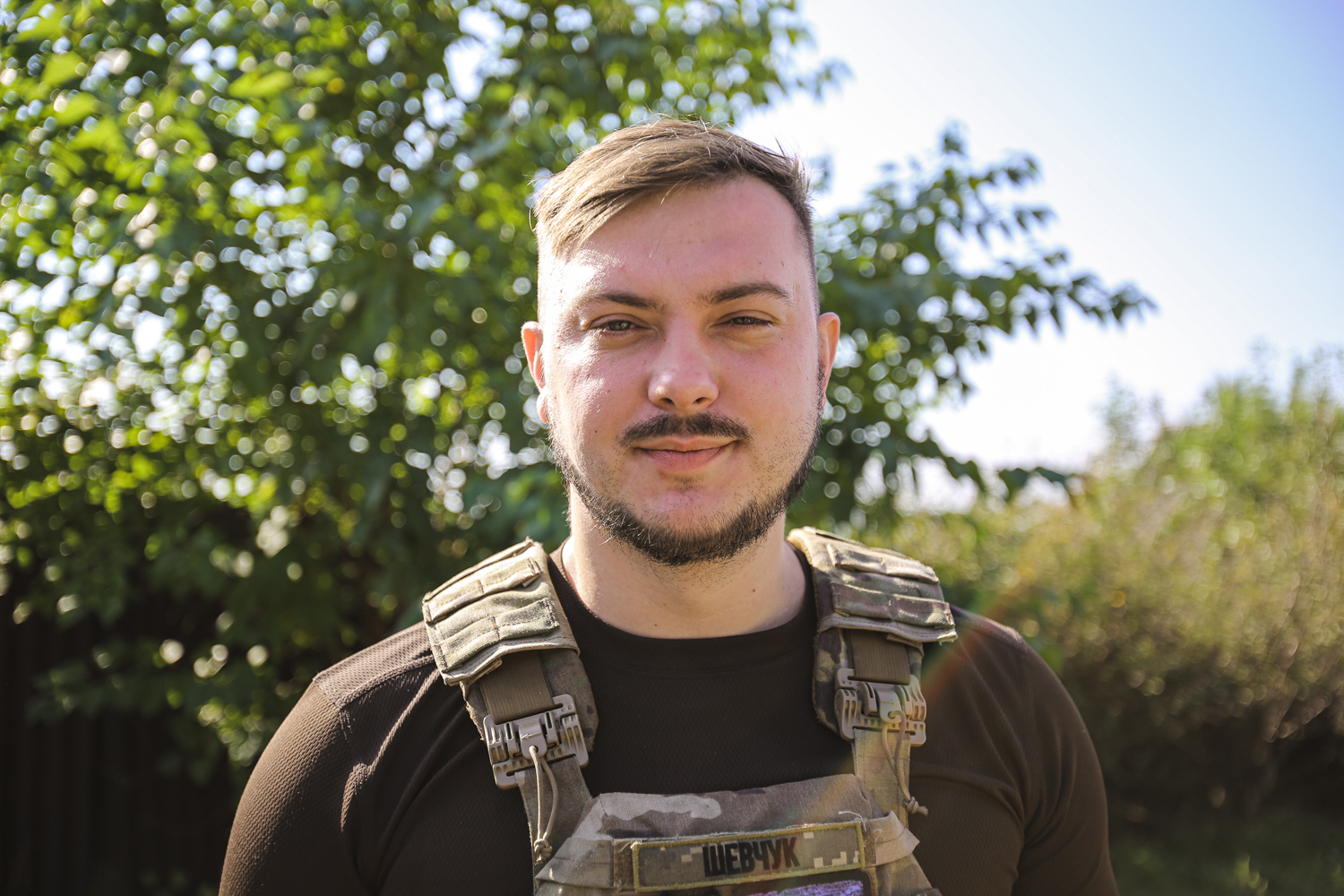
Lys served as a volunteer back in 2014, and once the full-scale phase began, he returned to the ranks joining the Kyiv Territorial Defence. Later on, he was transferred to the 80th Air Assault Brigade and became a squadron commander. When the hardest battles for Bakhmut were taking place, Lys recorded short videos from there showing that the Defence Forces were holding this fortress city and destroying а great many enemies. His content has become comforting to many – these days, as of early autumn 2023, this warrior has more than 150,000 followers on his tiktok.
We also talked to the soldiers from the 3rd Separate Assault Brigade. For instance, after the beginning of the full-scale war, its strike fighter with the call sign “Angel” returned to Ukraine from Poland where he worked for a construction team. He reflects on the significance of his native country:
— Ukraine is all we have. This is the place where I want to live. It’s simply the heart… it’s the other half of my heart.
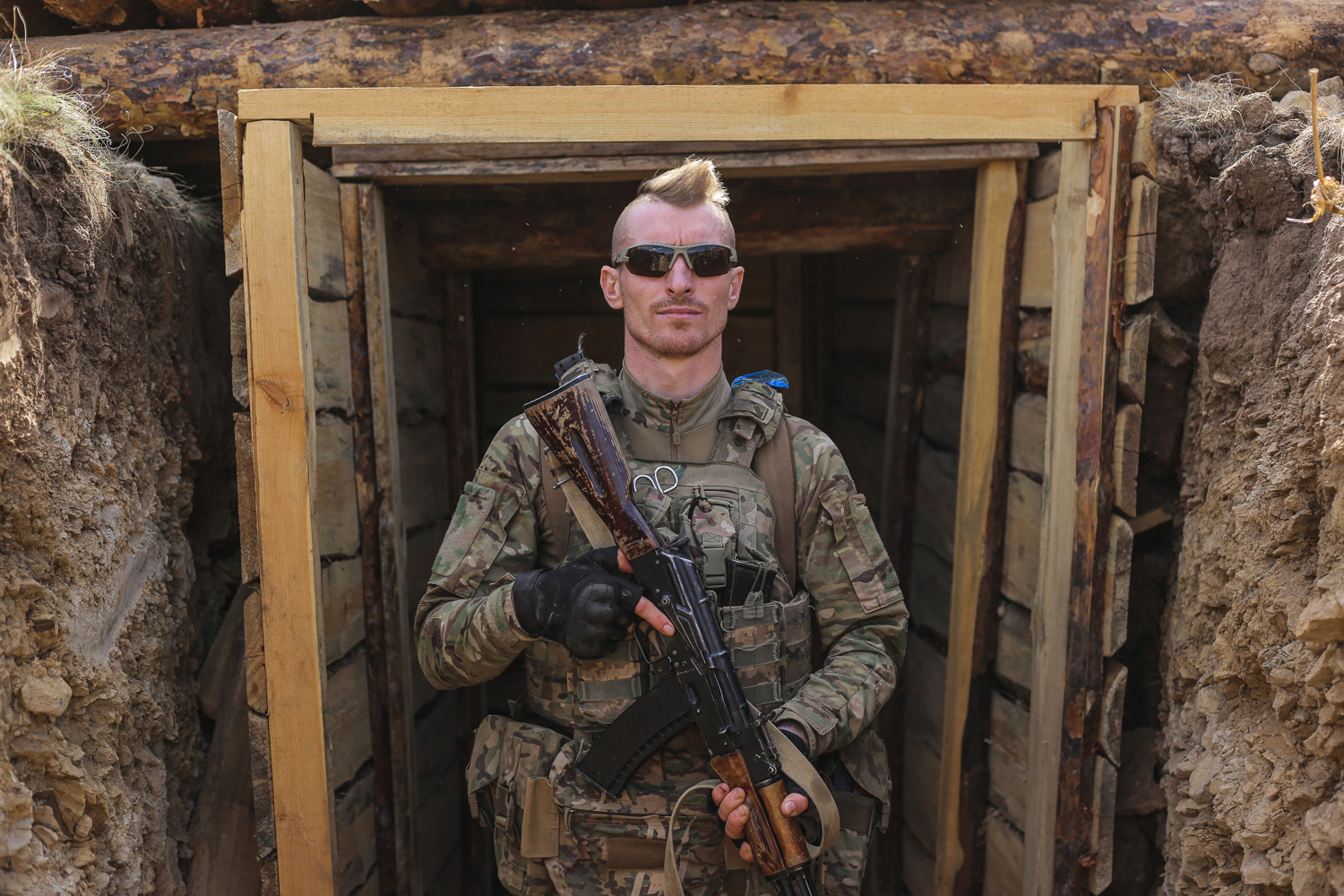
He says that after the victory he is willing to stay in Donechchyna and rebuild this region scarred by the Russians.
We also managed to talk to the soldiers of the 56th Separate Motorised Infantry Brigade of Mariupol. This unit used to be stationed in Mariupol, and many of the soldiers were born there. One of them has an eloquent callsign, “Satan” (Devil). Before the full-scale invasion he had an apartment in Mariupol, but now there is nothing left of it — the invaders levelled his house to the ground. That’s why Satan uses his callsign to the fullest, and without any hesitation he says about Ukraine:
— Ukraine is my family, friends, my nearest and dearest, and now my brothers in arms as well. I lost everything else I had in Ukraine as I am from Mariupol. That’s why I have nothing except for these people.
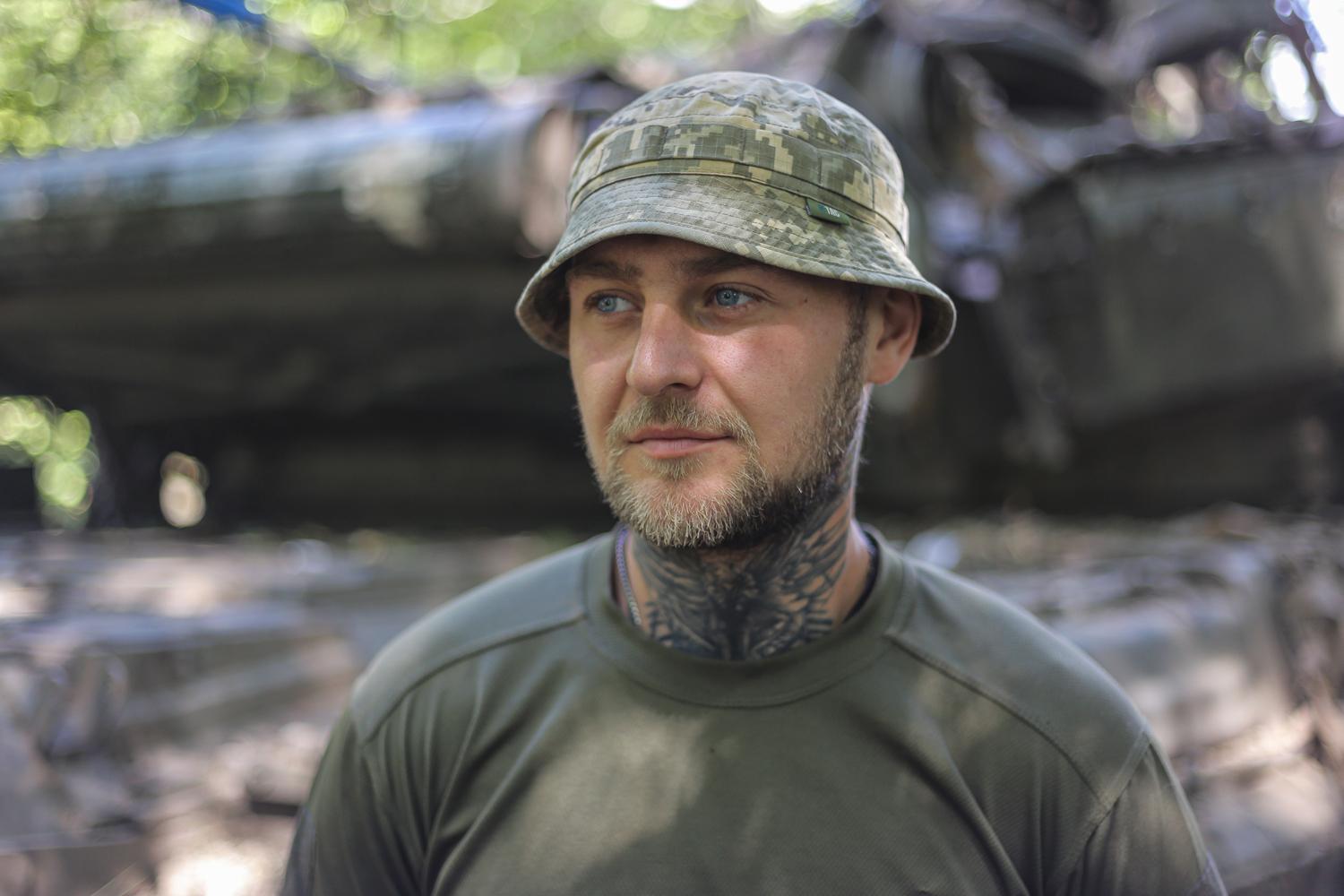
War as a forced routine for Ukrainian soldiers
Right behind the wooded area where we spoke with the tank crewmen, a local woman was grazing her cow. It seems that the presence of tanks driving along the rural dirt road has become a familiar sight for her. For over a year and a half now, life in Donechchyna has taken on an entirely new pace — even more unpredictable than when the war began in 2014.
Every day, we returned from filming to Kramatorsk, where we had rented a flat. I recall the city in May last year, eerily deserted at five in the evening despite the curfew not yet starting. Back then, Kramatorsk tensely awaited the enemy’s approach, simultaneously observing the conflict in nearby Lyman and the Russian military’s advance towards Sieverodonetsk. That summer, Russian troops occupied the left bank of the Siverskyi Donets, merely 20 kilometres from Kramatorsk. However, as the enemy was later pushed back over Lyman in the north, and their eastward advance significantly slowed, Kramatorsk — still the largest city in Donechchyna under Ukrainian control — gradually shed its fear of occupation.
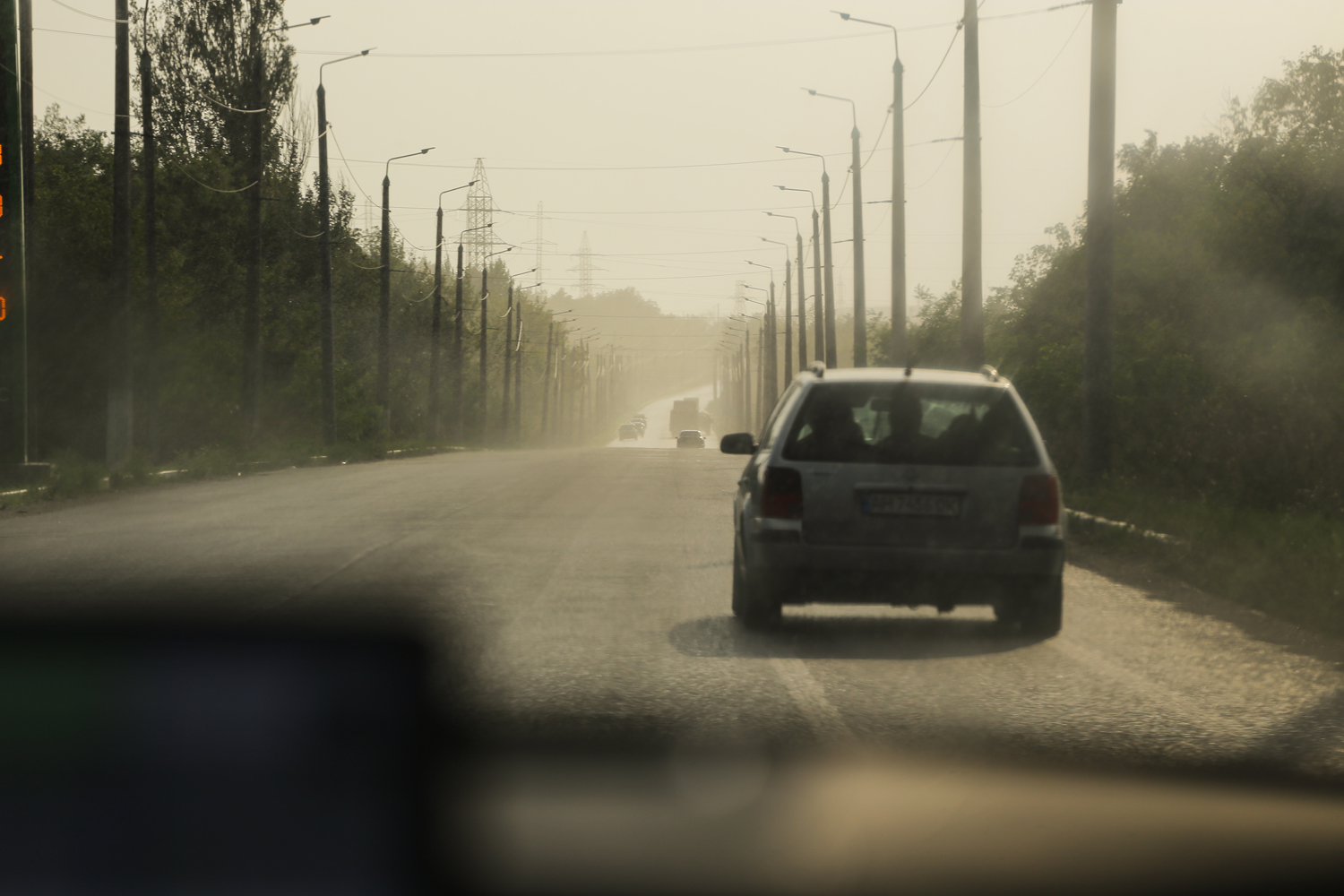
Russia regularly launches missiles at Kramatorsk, purposefully targeting residential areas and critical infrastructure facilities. When you are there, it seems the city has weathered its most challenging times and learned to persevere, adapting to new circumstances. It almost feels like half its population is now in the military: shops selling military clothing and equipment are commonplace on nearly every street. Camouflaged green cars are parked throughout the downtown area, and people in military green T-shirts queue at a kebab shop. Yet, amidst this, young boys and girls skateboard nearby, and a girl in a vyshyvanka waits for a minibus — a reminder that it’s Independence Day, after all.
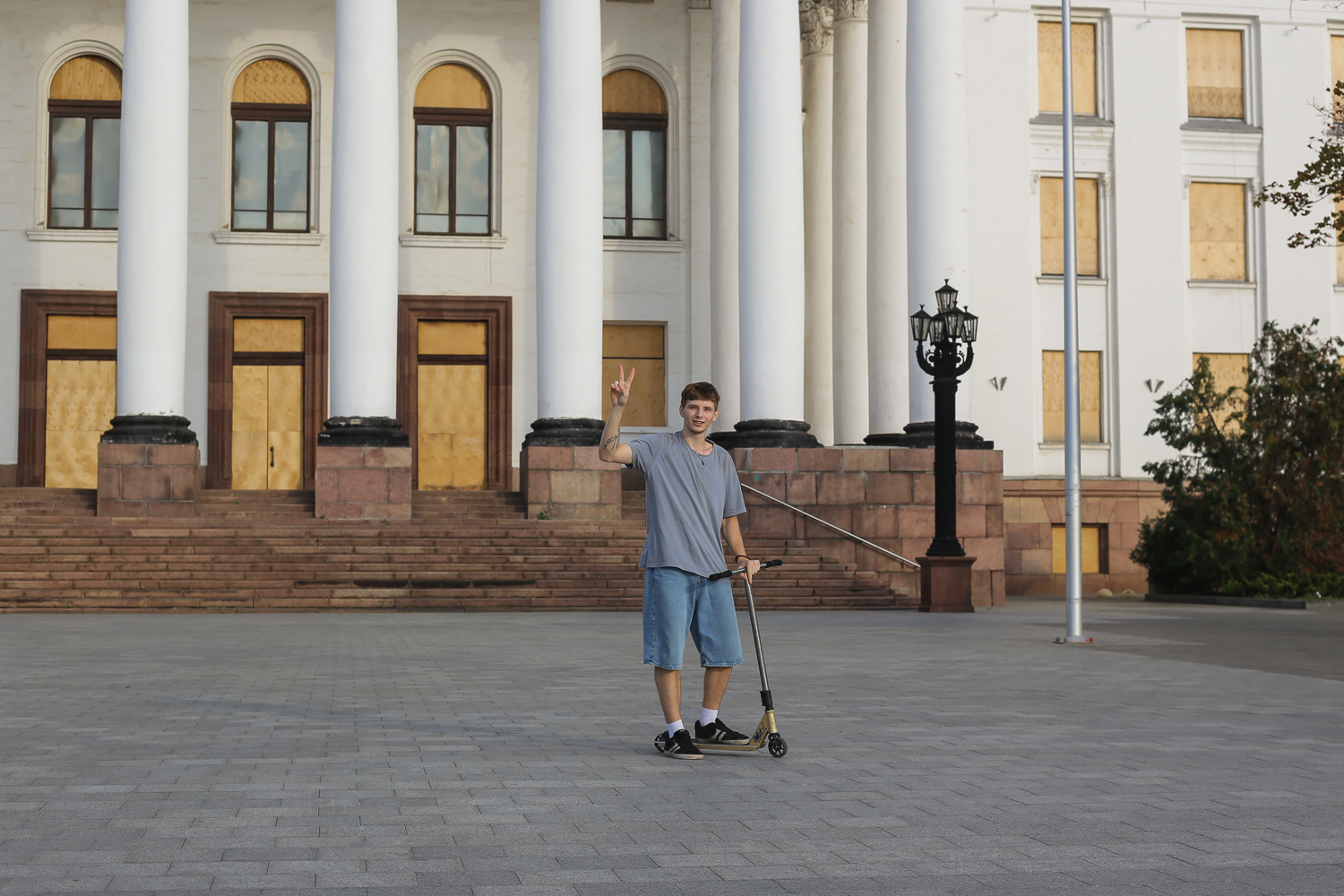
A lot of locals stayed in Kramatorsk or returned when it became clear that there was no way the Russian soldiers would get to the city. So these days the central streets are full of people at five in the evening. Trains from Kyiv are arriving at the railway station, and the platforms and squares in front of it are bustling again. Kramatorsk will always remember the Russian missile attack which killed 61 people at this very place on 8 April 2022. Because of this terrorist attack, the railway connection to the city was suspended for almost 7 months.
Despite this change, the city was still breathing half-heartedly. In many houses, the windows are boarded up with wooden slabs, and many shops, institutions and facilities have been closed for a year and a half. There are ruins instead of some of the previously popular places now.
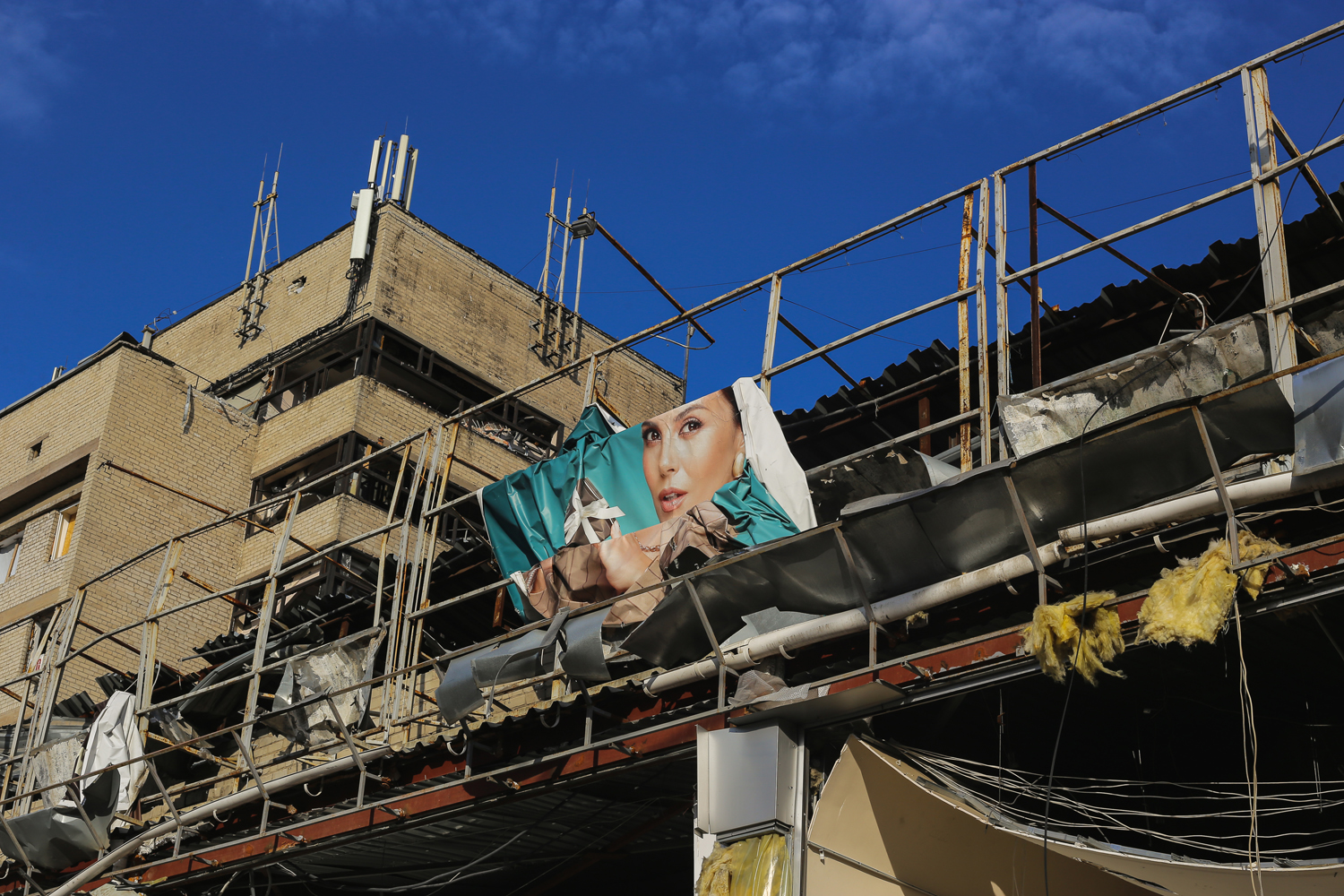
Our few days in Kramatorsk comforted us, since life does not stop here. On the other hand, it left us in anxious confusion, as it is difficult to walk the streets of the city and avoid remembering the bloody tragedies committed by the Russian military over here. One of them was a missile attack on the Ria Pizza pizzeria that killed 13 civilians. People have built a makeshift memorial next to the ruins, placing portraits of the victims side by side. Standing there and looking at them, I can hear someone approaching from behind. It’s a woman in a grey dress with a cross-body bag, just passing by, not even casting a glance at the shattered pizzeria. Most likely, she passes by every day. On another occasion, while walking past Ria Pizza, I noticed another woman crouched next to one of the portraits, bowing her head. I wanted to get closer and ask her something, to give her a hug. But I stood still, afraid to rub salt into her wounds.
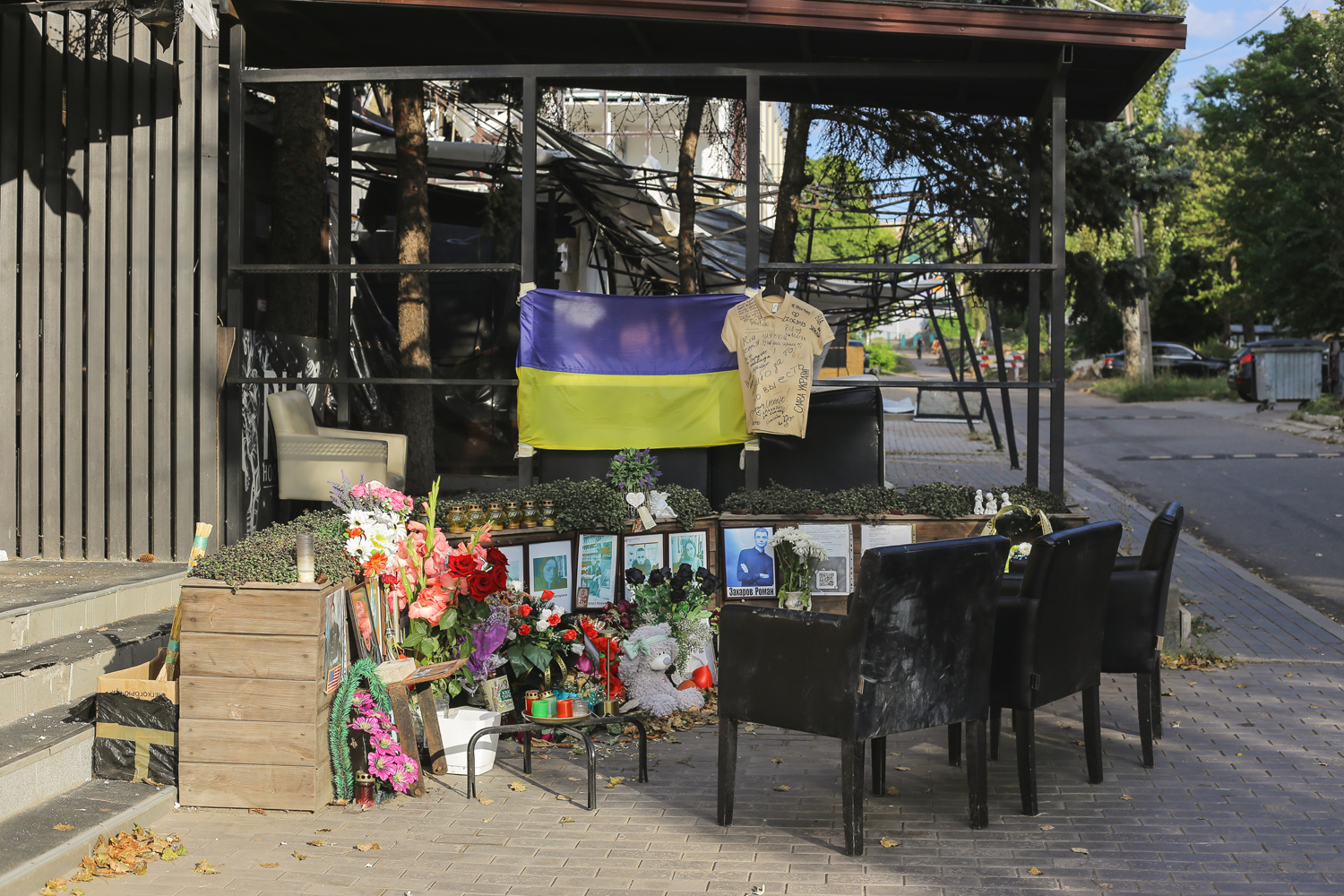
supported by


